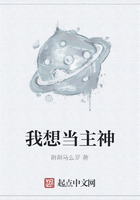"If it were only citizens, monseigneur," I said, "the battle would not be very sharp.""Who will be with them?" he replied; "will you be there yourself?""That would be a very bad omen," I said; "it would look too much like the proceedings of the League."After a little pause, he said, "But now, to be serious, would you be so foolish as to embark with those men?""You know, monseigneur," I said, "that I am engaged already; and that, moreover, as Coadjutor of Paris, I am concerned both by honour and interest in its preservation. I shall be your Highness's humble servant as long as I live, except in this one point."I saw he was touched to the quick, but he kept his temper, and said these very words: "When you engage in a bad cause I will pity you, but shall have no reason to complain of you. Nor do you complain of me; but do me that justice you owe me, namely, to own that all I promised to Longueil and Broussel is since annulled by the conduct of the Parliament."He afterwards showed me many personal favours, and offered to make my peace with the Court. I assured him of my obedience and zeal for his service in everything that did not interfere with the engagements I had entered into, which, as he himself owned, I could not possibly avoid.
After we parted I paid a visit to Madame de Longueville, who seemed enraged both against the Court and the Prince de Conde. I was pleased to think, moreover, that she could do what she would with the Prince de Conti, who was little better than a child; but then I considered that this child was a Prince of the blood, and it was only a name we wanted to give life to that which, without one, was a mere embryo. I could answer for M. de Longueville, who loved to be the first man in any public revolution, and I was as well assured of Marechal de La Mothe,--[Philippe de La Mothe-Houdancourt, deceased 1657.]-- who was madly opposed to the Court, and had been inviolably attached to M. de Longueville for twenty years together. I saw that the Duc de Bouillon, through the injustice done him by the Court and the unfortunate state of his domestic affairs, was very much annoyed and almost desperate. I had an eye upon all these gentlemen at a distance, but thought neither of them fit to open the drama. M. de Longueville was only fit for the second act; the Marechal de La Mothe was a good soldier, but had no headpiece, and was therefore not qualified for the first act. M. de Bouillon was my man, had not his honesty been more problematic than his talents. You will not wonder that I was so wavering in my choice, and that I fixed at last upon the Prince de Conti, of the blood of France.
As soon as I gave Madame de Longueville a hint of what part she was to act in the intended revolution, she was perfectly transported, and I took care to make M. de Longueville as great a malcontent as herself. She had wit and beauty, though smallpox had taken away the bloom of her pretty face, in which there sat charms so powerful that they rendered her one of the most amiable persons in France. I could have placed her in my heart between Mesdames de Gudmenee and Pommereux, and it was not the despair of succeeding that palled my passion, but the consideration that the benefice was not yet vacant, though not well served,--M. de La Rochefoucault was in possession, yet absent in Poitou. I sent her three or four billets-doux every day, and received as many. I went very often to her levee to be more at liberty to talk of affairs, got extraordinary advantages by it, and I knew that it was the only way to be sure of the Prince de Conti.
Having settled a regular correspondence with Madame de Longueville, she made me better acquainted with M. de La Rochefoucault, who made the Prince de Conti believe that he spoke a good word for him to the lady, his sister, with whom he was in, love. And the two so blinded the Prince that he did not suspect anything till four years after.
When I saw that the Court would act upon their own initiative, I resolved to declare war against them and attack Mazarin in person, because otherwise we could not escape being first attacked by him.
It is certain that he gave his enemies such an advantage over him as no other Prime Minister ever did. Power commonly keeps above ridicule, but everybody laughed at the Cardinal because of his silly sayings and doings, which those in his position are seldom guilty of. It was said that he had lately asked Bougeval, deputy of the Grand Council, whether he did not think himself obliged to have no buttons to the collar of his doublet, if the King should command it,--a grave argument to convince the deputies of an important company of the obedience due to kings, for which he was severely lampooned both in prose and verse.
The Court having attempted to legalise excessive usury,--I mean with respect to the affair of loans,--my dignity would not permit me to tolerate so public and scandalous an evil. Therefore I held an assembly of the clergy, where, without so much as mentioning the Cardinal's name in the conferences, in which I rather affected to spare him, yet in a week's time I made him pass for one of the most obstinate Jews in Europe.
At this very time I was sent for, by a civil letter under the Queen's own hand, to repair to Saint Germain, the messenger telling me the King was just gone thither and that the army was commanded to advance. I made him believe I would obey the summons, but I did not intend to do so.
I was pestered for five hours with a parcel of idle rumours of ruin and destruction, which rather diverted than alarmed me, for though the Prince de Conde, distrusting his brother the Prince de Conti, had surprised him in bed and carried him off with him to Saint Germain, yet I did not question but that, as long as Madame de Longueville stayed in Paris, we should see him again, the rather because his brother neither feared nor valued him sufficiently to put him under arrest, and I was assured that M. de Longueville would be in Paris that evening by having received a letter from himself.















